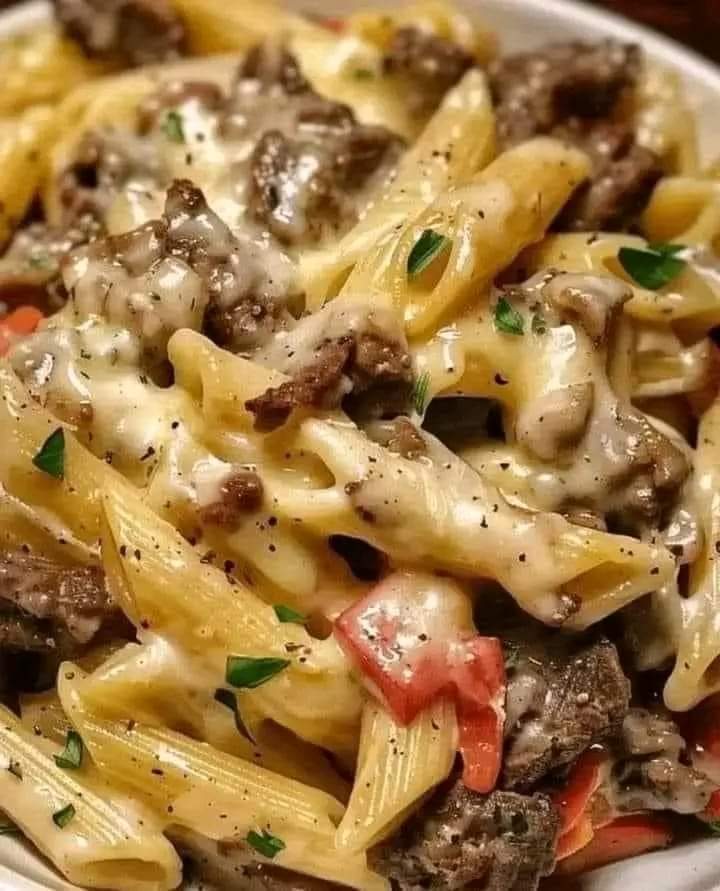Philly Cheesesteak Pasta is a tasty fusion dish that merges the flavors of a classic Philly cheesesteak with pasta. It features tender steak, sautéed onions and peppers, and a creamy cheese sauce, all mixed together with pasta for a comforting and savory meal.
Philly Cheesesteak Pasta:
Ingredients:
1 lb ground beef
1 green bell pepper, diced
1 onion, diced
3 cloves garlic, minced
8 oz cream cheese
1 cup beef broth
1 cup heavy cream
2 cups shredded provolone cheese
1lb pasta (penne or rigatoni)
Salt and pepper to taste
1 tablespoon olive oil.
Variations:
- Cheese Choices: Swap provolone for mozzarella, cheddar, or a blend of cheeses for different flavors.
- Meat Options: Use chicken, pork, or even a plant-based alternative instead of beef.
- Veggies: Add mushrooms, spinach, or tomatoes for extra flavor and nutrition.
- Pasta Types: Try different pasta shapes like penne, rigatoni, or even macaroni.
Tips:
- Steak Preparation: Use thinly sliced steak for even cooking and better texture.
- Sauce Consistency: Adjust the thickness of the cheese sauce with milk or cream as needed.
- Cooking Time: Avoid overcooking the steak; it should be tender and juicy.
- Seasoning: Taste and adjust seasoning with salt, pepper, or a pinch of garlic powder to enhance flavor.
To store Philly Cheesesteak Pasta:
- Cool Down: Allow the pasta to cool to room temperature before storing.
- Airtight Container: Place it in an airtight container to prevent moisture loss and maintain freshness.
- Refrigerate: Store in the refrigerator for up to 3-4 days.
- Reheat Properly: Reheat in the microwave or on the stovetop, adding a splash of milk or broth to restore creaminess if needed.
For longer storage, consider freezing the pasta in an airtight container or freezer bag for up to 2-3 months. Thaw in the refrigerator before reheating.
The nutritional information for Philly Cheesesteak Pasta can vary based on the recipe and portion size, but a typical serving of a homemade version (about 1 cup) might have:
- Calories: 400-600
- Protein: 20-30 grams
- Total Fat: 20-30 grams
- Saturated Fat: 8-15 grams
- Cholesterol: 60-100 mg
- Carbohydrates: 40-60 grams
- Dietary Fiber: 2-4 grams
- Sugars: 5-8 grams
- Sodium: 800-1,200 mg.
These values can vary significantly based on ingredients used, portion size, and preparation methods. For precise nutritional details, it’s best to use a recipe calculator or consult the specific ingredient labels.
